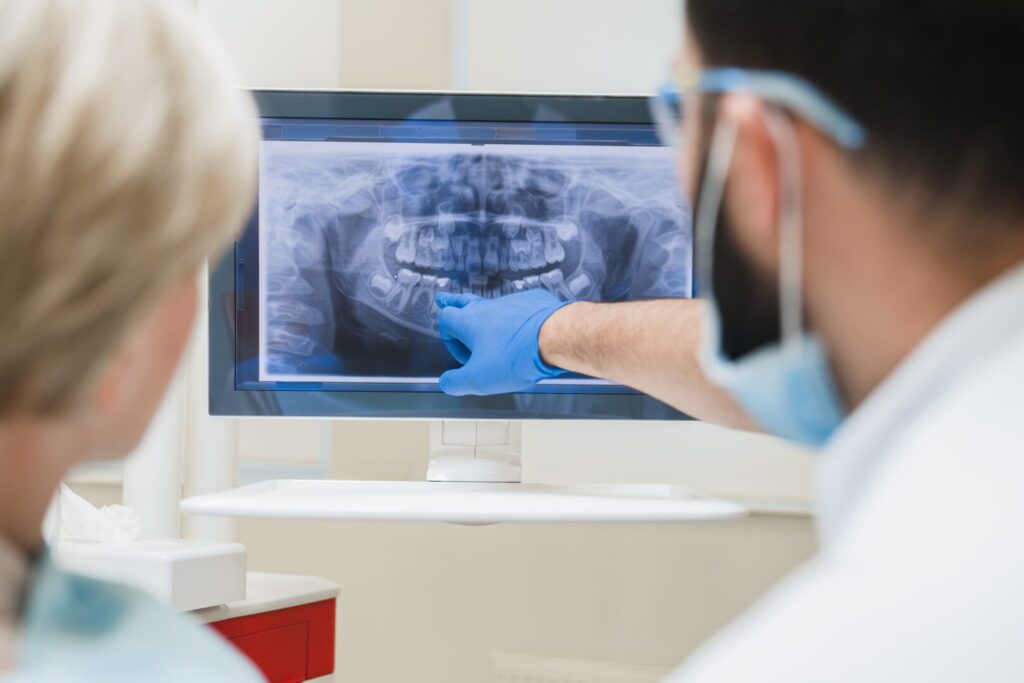Endodontists for Your Root Canal Therapy

If you visit your general dentist with tooth pain or a history of pain within the root of the tooth, your dentist may refer you to an endodontist. Although many general dentists perform root canal therapy, in many cases they prefer to refer treatment to a specialist for endodontic care.
What is an Endodontist?
All endodontists are dentists, but a very small percentage of dentists are endodontists. These specialists receive an additional two or three years of training beyond dental school. They primarily study the interior of the tooth focusing on tooth pain and root canals.
Types of Endodontic Solutions
An endo specialist provides dental treatment that deals with the interior of the tooth.
Root Canal Therapy
If you have a toothache, this often means you have an infection in your tooth root. An endodontist cleans the infection from the root canal, then fills the tooth root and seals it. Because this procedure removes the living tissue from the tooth root, the remaining tooth structure can become brittle. A dental crown will strengthen the tooth enabling you to chew comfortably again.
Retreatment
Retreatment after a root canal might be needed if infection recurs after the initial treatment. Perhaps the canal anatomy is particularly complex and bacteria was left behind in the area. If placement of the dental crown was delayed after the root canal, this can also make the tooth root vulnerable to salivary contamination. In most cases, however, endodontic treatment such as root canals have a very high rate of success.
Apicoectomy
If you have a root canal but your tooth cannot be successfully treated, your endodontist may recommend an apicoectomy. This surgical procedure removes and seals the very tip of the tooth root. This option can eliminate remaining infection and can save the tooth from extraction.
Cracked Teeth
Cracked teeth can occur if you chew on hard foods, nonfood items or if you grind your teeth. You can also develop cracked teeth as part of the aging process. Cracked teeth are one of the leading causes of tooth loss. Although many people feel pain with a cracked tooth, this is not always the case. Regular dental exams can help identify cracked teeth in their earliest stages enabling repairs to be made by an endo specialist with bonding, crowns or a root canal.
Dental Emergency
If you are experiencing severe dental pain or have oral bleeding that will not stop, this is considered a dental emergency. When a tooth has been knocked out (avulsed), you need to seek immediate treatment from an endo specialist to try and save your tooth. If you suspect you have broken your jaw, you should contact 9-1-1 or go to the nearest emergency room.
Endodontic Procedures
Endodontists specialize in the following procedures: root canal, endodontic surgery, dental implants and traumatic dental injuries.
Step 1
Most of our patients who need endodontic treatment do not need a referral from their general dentist. If you have pain or suspect you need a root canal specialist, reach out to our office.
Step 2
You can call us at 888-329-8111*, or fill out our online form and we’ll get back to you with an appointment time.
Step 3
Please arrive at your initial appointment at least 15 minutes early so you can provide us with information about your health history, as well as current medical treatments and prescriptions.
Post-Treatment: What to Do After Endodontic Care
After endodontic care, the treated area might be tender for a few days. You should avoid alcohol and recreational drugs, especially if you are on pain medication.
Getting Your Root Canal and Endodontic Treatment at West Coast Dental
At West Coast Dental, our goal is to help ensure your teeth last a lifetime. Endodontic treatment can help ensure you enjoy a healthy smile for years to come.
Team of Board-Certified Endodontic Specialists
If you are experiencing dental pain and wondering whether you should go to the endodontist vs. the dentist. We welcome you to contact our office of endo specialists. Every member of our team is highly trained to provide you with the best endodontic services.
Same-Day Appointments Available
When you have a dental emergency, we can provide endodontic treatment the same day to get you on your way. Just contact us.
We Accept Most Insurances
We accept most insurance plans, as well as CareCredit for endodontic treatment. Just contact us and we can inform you of all your payment options.
We offer a variety of payment options to make your crown affordable. We also accept most dental insurance plans and have a dental discount program for patients without insurance. Call us at our toll-free number 888-329-8111* or make an appointment online here.



